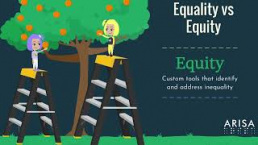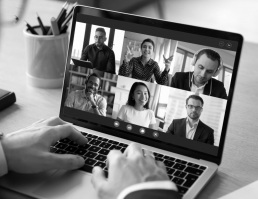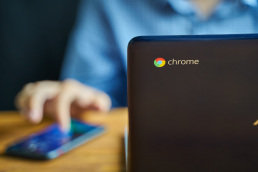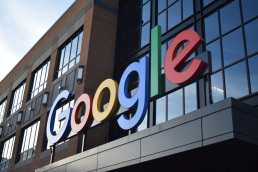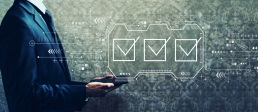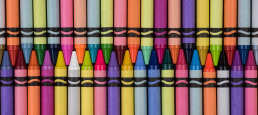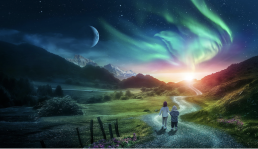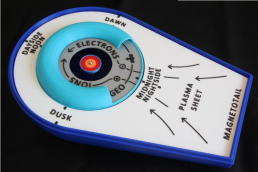Resources
Resources
ARISA Lab utilizes a wide ranges of resources and tools from partners and experts to create accessible STEAM learning experiences. Below you can find out more about the resources ARISA creates as well as other Web Accessibility and NASA resources that we regularly use.
ARISA Resources
Equality Vs Equity Video
Have you heard the terms "Equality" and "Equity" and wondered if they were the same thing or what the differences between the two are? This short video will help guide you through the differences between equality and equity and explain why the differences are important.
July 17, 2022
Accessibility Resources
WAVE Web Accessibility Evaluation Tool
WAVE® is a suite of evaluation tools that helps authors make their web content more accessible to individuals with disabilities
July 17, 2022
List of Chromebook Accessibility Features
Google has a series of updated tips to make your website more accessible.
July 17, 2022
Google tips to make your site more accessible
Google has a series of updated tips to make your website more accessible.
July 17, 2022
WebAIM Website Accessibility Quick Reference
WebAIM offers a Quick Reference for Testing Web Content Accessibility
July 17, 2022
WebAIM Contrast Checker
WebAIM offers a free color contrast checker that allows you to determine if colors used on your website meet accessibility guidelines.
July 17, 2022
NASA Resources
We Asked a NASA Expert YouTube
Do aliens exist? Will an asteroid ever hit Earth? NASA scientists and engineers answer all these burning questions and more.
July 26, 2022
NASA Science Activation
NASA's Science Activation team (SciAct) helps learners of all ages “do” science!
July 17, 2022
NASA 3D Resources
A growing collection of 3D models, textures, and images from inside NASA. All of these resources are free to download and use
July 15, 2022
We Asked a NASA Expert
Do aliens exist? Will an asteroid ever hit Earth? NASA scientists and engineers answer all these burning questions and more.
July 15, 2022
About Us - Who We Are Dev2
Who we are
The ARISA Lab quickly mobilizes teams of experts, partner institutions, and technologies to best meet the needs of each project. In order to make that happen, ARISA maintains strong relationships with highly skilled vendors, freelancers, companies, nonprofits, and government agencies that are ready to take on technical and specialized projects.
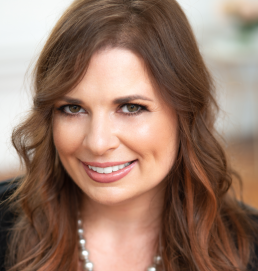

MaryKay Severino
Co-Founder, Chief Operating Officer, Education Director
MaryKay is a native Bostonian who grew up in the Somerville/Arlington area. After graduating from Villanova with a Bachelor’s in Economics/Business, she went on to work in the business world, specifically in program management and marketing.
She then went on to earn her Master’s degree in Education and worked in public & private K-12 school systems and universities in Taiwan and South Korea. Upon returning to the Boston area MaryKay worked in the K-12 public school system before leaving to start her own small business as a REALTOR® while also functioning as the Project Manager for the Eclipse Soundscapes Project at the Center for Astrophysics | Harvard & Smithsonian.
Living abroad gave MaryKay a strong understanding of the challenges faced by anyone who communicates differently. For this reason, the Eclipse Soundscapes project was a natural fit. There she used her program management skills to promote, plan, and execute a project which will bring the amazement and wonder of an eclipse to a more inclusive demographic and also developed a deeper love for Science.
Having worked as both a businesswoman and an educator, MaryKay realized that her passion lies in both building businesses and promoting and supporting more inclusive education. This led her to start ARISA Lab with friend and co-founder, Trae.
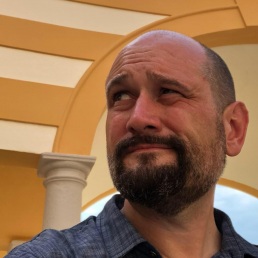

Dr. Henry "Trae" Winter III
Co-Founder, Chief Executive Officer, Chief Scientist
Trae is a solar astrophysicist who has worked on eight NASA missions observing the Sun. His primary research focus was understanding how energy is released in the Sun’s atmosphere, the corona, and in other stars. Trae spearheaded many efforts to engage the public in scientific discovery, including work with the Montana Space Grant Consortium, the Salish-Kootenai Flathead Lake Reservation, and the Boston Lyrical Opera.
To highlight the spectacular images being produced by the Solar Dynamics Observatory, Trae designed a series of video wall exhibits for the Cooper Hewitt, Smithsonian Design Museum, the Smithsonian National Air and Space Museum, North Carolina State University’s Hunt Library, the Harvard Art Museums’ Lightbox Gallery, and the Museum of Boulder. However, Trae quickly realized many people had no access to the exhibits he was helping create, the blind and visually impaired (BVI).
To make science accessible to everyone, Trae began the Eclipse Soundscapes Project that built a mobile application that would engage all users with the 2017 Total Solar Eclipse. Consultants, who were themselves blind, were included at every stage of the application’s design process. The application used images, spoken word descriptions, sound, and touch to make eclipse features accessible and engaging to everyone as they were occurring.
Based on the success of the Eclipse Soundscapes Project model, Trae and MaryKay Severino founded the ARISA Lab which could quickly assemble highly trained and diverse teams to invent the new technologies and techniques necessary to make scientific exploration effective, accessible, and engaging for everyone.
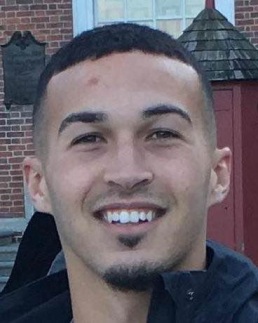

Arlindo Goncalves
iOS Developer
Arlindo Goncalves is an iOS developer from Brockton, Massachusetts, who graduated from University of Massachusetts, Boston with a degree in Computer Science. He enjoys developing applications that help schools and other institutions engage youth, making education a focal point in their lives. In his free time, Arlindo enjoys playing soccer and cooking for his family and friends.
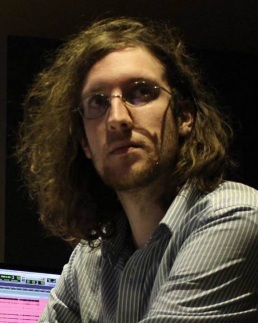

Miles Gordon
Multimedia Developer
Miles Gordon is an audio engineer and multimedia developer currently based in Honolulu. In addition to working on museum installations and accessible media applications, he has been involved in the development of several video games and the creation of several albums.
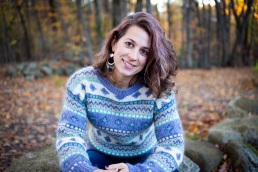

Kelsey Perrett
Freelance Writer, Editor, Web Producer, and Social Media Specialist
Kelsey Perrett is a Massachusetts-based freelance writer, editor, web producer, and social media specialist. She enjoys writing about travel, health and fitness, and the environment. When she isn’t writing, she can be found outside exploring trails, at the gym/yoga studio, or attempting to conquer an ever-expanding reading list. Kelsey Perrett is the author of the guidebook Moon New England Hiking.
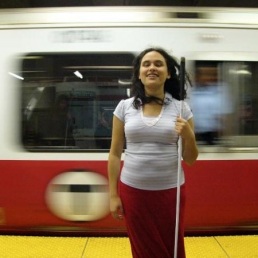

Lindsay Yazzolino
Freelance Writer, Editor, Web Producer, and Social Media Specialist
Lindsay is an accessible technology consultant with particular interests in developing “hand-catching” tactile interfaces and in promoting hands-on science engagement. As a lifelong science enthusiast who has been totally blind since birth, she leverages her inherent nonvisual expertise to collaborate with ARISA Lab scientists, artists, and museum professionals to develop products designed to be experienced through touch and sound. Lindsay has spent several years as a cognitive neuroscience research coordinator, and continues to assist researchers with running studies of cognitive abilities in blind individuals such as braille reading, language, and mathematical proficiency.


NASA Space Science Education Consortium (NSSEC)
The NASA Space Science Education Consortium (NSSEC) capitalizes on NASA’s rich history of sharing research and technology through compelling and innovative education projects. The NSSEC (formerly the Heliophysics Education Consortium (HEC)) continues the Science Mission Directorate’s (SMD) work at the forefront of NASA’s educational endeavors by linking exciting science and missions directly to the American public. The NSSEC team has learned from the strengths and weaknesses of previous programs and has a clear, adaptable plan forward.


NSSEC STEAM Innovation Lab
NASA’s STEAM Innovation Lab is a think tank with an emphasis on space science content applications. It brings together NASA scientists, engineers and educators to explore and develop new ideas related to infusion of educational technology into STEAM (Science, Technology, Engineering, Art, and Mathematics) activities, programs and approaches. Inside the lab are 10 interchangeable STEAM exploration stations fitted with technologies typically found in many of today’s 21st century educational environments. By placing these stations in close proximity to each other, we encourage users to investigate how the technologies can be effectively blended together for greater impact and integration into NASA education programs and products.
GBH's National Center for Accessible Media
For over two decades, the National Center for Accessible Media (NCAM) has been a national leader in making digital media accessible for people with disabilities.
The team in NCAM—with over 150 years of combined experience in accessibility—are pioneers, inventors, and problem-solvers, frequently anticipating and creating solutions for tomorrow’s technology challenges.
About Us - Who We Are
Who we are
The ARISA Lab quickly mobilizes teams of experts, partner institutions, and technologies to best meet the needs of each project. In order to make that happen, ARISA maintains strong relationships with highly skilled vendors, freelancers, companies, nonprofits, and government agencies that are ready to take on technical and specialized projects.
ARISA Team
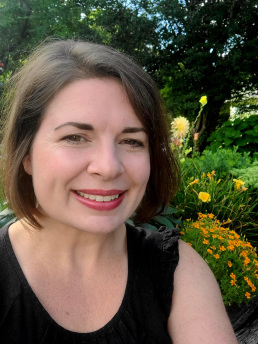

MaryKay Severino
Co-Founder, Education Director, Project Manager
MaryKay Severino is an educator, project manager, small business owner, and innovator. She earned a Bachelor’s degree in Economics/Business and a Master’s degree in Education. She began her career working in program management and marketing within the business world before transitioning to education. MaryKay worked in K-12 schools and universities in South Korea and later in the Boston area. After leaving formal education, she supported NASA’s Space Science Education Consortium Phase 1, specifically the Eclipse Soundscapes Project 1.0, as the Education & Exhibits Project Manager. For her contributions to the 2017 solar eclipse, she received a Certificate of Appreciation from NASA’s Science Mission Directorate. She later co-founded the ARISA Lab with Dr. Henry “Trae” Winter, where she serves as the Education Director.
MaryKay previously served as the Principal Investigator of Eclipse Soundscapes: 2.0 , a project that successfully concluded. She is currently a Co-Investigator on Eclipse Soundscapes: Citizen Science Project, continuing her work on creating engaging and innovative learning experiences.
Living abroad in Europe and Asia for many years, combined with her work as an ESL teacher and involvement in the Eclipse Soundscapes projects, has provided MaryKay with valuable insights into the challenges faced by individuals navigating diverse forms of communication. She is passionate about developing effective approaches to enhance learning opportunities and sharing best practices in both formal and informal STEAM education.


Dr. Henry "Trae" Winter III
Co-Founder, Chief Scientist
Trae is a solar astrophysicist who has worked on eight NASA missions observing the Sun. His primary research focus was understanding how energy is released in the Sun’s atmosphere, the corona, and in other stars. Trae has led numerous efforts to engage the public in scientific discovery, including collaborations with the Montana Space Grant Consortium, the Salish-Kootenai Flathead Lake Reservation, and the Boston Lyrical Opera.
To showcase the remarkable images produced by the Solar Dynamics Observatory, Trae designed a series of video wall exhibits for venues such as the Cooper Hewitt, Smithsonian Design Museum, the Smithsonian National Air and Space Museum, North Carolina State University’s Hunt Library, the Harvard Art Museums’ Lightbox Gallery, and the Museum of Boulder.
Building on his passion for public engagement, Trae founded the Eclipse Soundscapes Project to create a mobile application for the 2017 Total Solar Eclipse. The app combined images, spoken word descriptions, sound, and touch to provide users with an immersive experience of the eclipse as it occurred.
Inspired by the success of the Eclipse Soundscapes Project, Trae and MaryKay Severino co-founded the ARISA Lab. Their goal was to assemble highly skilled teams to develop innovative technologies and techniques for effective and engaging scientific exploration.
Our Partners


Arlindo Goncalves
iOS Developer
Arlindo Goncalves is an iOS developer from Brockton, Massachusetts, who graduated from University of Massachusetts, Boston with a degree in Computer Science. He enjoys developing applications that help schools and other institutions engage youth, making education a focal point in their lives. In his free time, Arlindo enjoys playing soccer and cooking for his family and friends.
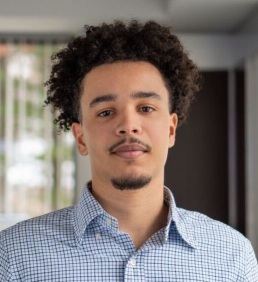

Joel Goncalves
Application Developer
Joel Goncalves is a software engineer from Brockton, Massachusetts and a Computer Science graduate from the University of Massachusetts, Boston. As an engineer, he is passionate about creating and contributing to meaningful applications. As a hobby, he likes to hike, travel and play sports


Kelsey Perrett
Freelance Writer, Editor, Web Producer, and Social Media Specialist
Kelsey Perrett is a Massachusetts-based freelance writer, editor, web producer, and social media specialist. She enjoys writing about travel, health and fitness, and the environment. When she isn’t writing, she can be found outside exploring trails, at the gym/yoga studio, or attempting to conquer an ever-expanding reading list. Kelsey Perrett is the author of the guidebook Moon New England Hiking.


Lindsay Yazzolino
Tactile designer and consultant
Lindsay is a technology consultant with particular interests in developing “hand-catching” tactile interfaces and in promoting hands-on science engagement. As a lifelong science enthusiast who has been totally blind since birth, she leverages her inherent nonvisual expertise to collaborate with ARISA Lab scientists, artists, and museum professionals to develop products designed to be experienced through touch and sound. Lindsay has spent several years as a cognitive neuroscience research coordinator, and continues to assist researchers with running studies of cognitive abilities in blind individuals such as braille reading, language, and mathematical proficiency.
